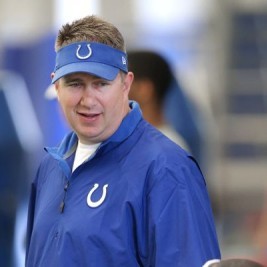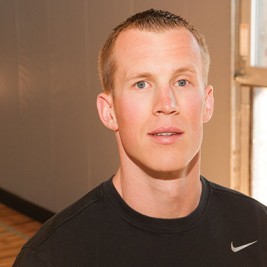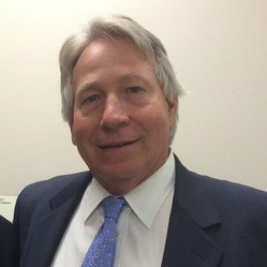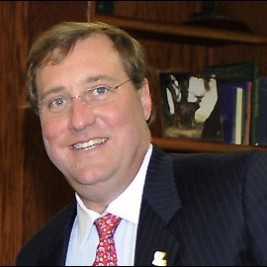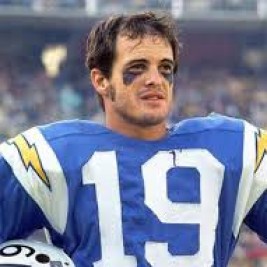
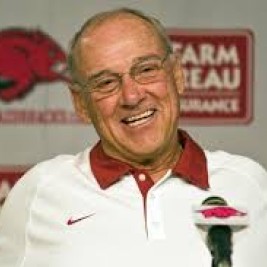
Corporate Appearances, Speaking Engagements, Autograph Signings, Endorsements, VIP Meet & Greets, Store Grand Openings
Book John L. Smith for a Speaking Engagement
Businesses, Non-profit organizations, event planners and companies across the country have worked closely with our booking agents to hire John L. Smith for a speaking engagements, guest appearances, product endorsements and corporate events. Many of those same clients have continued to turn to our speakers bureau as we can easily align John L. Smith’s availability with their upcoming seminar, gala, annual conference, corporate function, and grand opening. Our close relationship with John L. Smith’s booking agent and management team further enables us to provide inquiring clients with John L. Smith’s speaking fee and appearance cost.
If your goal is to hire John L. Smith to be your next keynote speaker or to be the next brand ambassador our celebrity speakers bureau can assist. If John L. Smith’s booking fee is outside your companies budget or your unable to align with his appearance availability, our booking agents can provide you a list of talent that aligns with your event theme, budget and event date.
Despite falling short in their quest for a second-straight bowl bid, the Spartans (5-7, 4-4 Big Ten) produced some impressive results in 2004, recording two victories over ranked opponents. Michigan State dominated play in all three phases of the game in stunning No. 4 Wisconsin, 49-14. Against the Badgers, the Spartans had two goal-line stands, amassed 430 yards on the ground and blocked a punt for a touchdown. Michigan State was equally as impressive in its 51-17 triumph over No. 19 Minnesota as the Spartans produced a season-best 636 total yards while limiting the nation's third-best running game to just 102 yards - 199 below its season average.
In 2004, Michigan State featured one of the nation's most prolific offensive attacks. The Spartans led the Big Ten and ranked No. 10 in the NCAA in total offense (460.0 yards per game) while racking up a school single-season record 5,520 total yards. In addition, Michigan State finished second in the Big Ten and No. 10 nationally in rushing, averaging 238.5 yards per game. In Big Ten play, the Spartans rushed for a league-best 265.8 yards per game. The 2,862 rushing yards marked the sixth-best single-season total in Spartan history.
Overall, the 2004 Spartans produced top 10 single-season totals in seven different offensive categories, including total offense (No. 1: 5,520 total yards), total yards per game (No. 2: 460.0 ypg.), first downs (No. 2: 269), rushing yards (No. 6: 2,862), total points (No. 8: 353), passing yards (No. 9: 2,658) and scoring average (No. 10: 29.4 ppg.).
Michigan State football also posted some remarkable numbers in the classroom as a school-record 13 Spartans earned Academic All-Big Ten honors in 2004. In two seasons under Smith, 23 student-athletes have been named Academic All-Big Ten, the highest two-year total in program history.
When Smith arrived in East Lansing, he brought with him a reputation as a program builder from his previous head-coaching tenures at Idaho, Utah State and Louisville. He has only enhanced that track record at Michigan State, earning the Dave McClain Coach of the Year award as selected by the Big Ten media panel. Smith, who inherited a team that went 4-8 in 2002, orchestrated the nation's fifth-biggest regular-season turnaround by producing an 8-4 record in 2003. After finishing eighth in the league with a 2-6 mark in 2002, the Spartans climbed to fourth in the final Big Ten standings at 5-3.
His eight wins marked the most by a first-year coach in school history. Smith also became only the second first-year coach in Spartan history to earn a postseason bowl bid (Alamo Bowl vs. Nebraska), joining Nick Saban who guided the 1995 team to a 6-5-1 record including a trip to the Independence Bowl.
Michigan State opened the 2003 campaign with a 7-1 record - its best start since 1966. The Spartans put together a five-game winning streak that featured victories over three ranked opponents: Notre Dame (NR/No. 23), Iowa (No. 13/9) and Minnesota (No. 25/19). Following its 44-38 victory at Minnesota, Michigan State ascended to No. 9 in The Associated Press poll - its first appearance in the AP Top 10 since the 1999 season. In addition, the Spartans opened Big Ten play 4-0 for just the third time since joining the league in 1953.
Smith wasted little time injecting doses of confidence and fiery competitiveness. His influences were evident in all three phases of the game. Veteran quarterback Jeff Smoker thrived in the spread offense, leading the Big Ten in both passing (261.2 yards per game) and total offense (252.2 ypg.). Thanks to his aggressive defensive philosophy, the Spartans led the Big Ten in sacks (45 for 299 yards) and takeaways (29) while finishing second in turnover margin (+11). Michigan State boasted arguably one of the nation's best kicking tandems, in punter Brandon Fields (No. 2 in NCAA with 46.3 avg.) and placekicker Dave Rayner (No. 10 in NCAA with school-record 22 made field goals). In addition, All-American DeAndra Cobb ranked No. 11 nationally in kickoff returns with his 27.2-yard average, including an NCAA record-tying three runbacks for touchdowns.
The 56-year-old Smith has compiled a 123-72 record (.631) in 16 years as a college head coach, including an impressive 80-32 mark (.714) in conference games. He ranks No. 12 among active NCAA I-A football coaches in career victories (123) and No. 17 in career winning percentage (.631). Smith has produced six conference champions (two Conference USA, two Big West and two Big Sky). Twelve of his 16 teams have participated in postseason play, including seven-straight bowl appearances from 1997-2003. Smith is one of 18 head coaches in college football history to take three different teams to bowl games, including one of just four active coaches to accomplish this feat (Mack Brown: Tulane, North Carolina and Texas; Dennis Franchione: New Mexico, TCU, Alabama and Texas A&M; and Ken Hatfield: Air Force, Arkansas and Clemson).
Smith came to Michigan State following five seasons at Louisville (1998-2002) where he led the Cardinals to unprecedented success. He put together a 41-21 worksheet (.661), including five-straight bowl appearances and back-to-back Conference USA titles in 2000-01. The five bowl trips equaled the number of postseason appearances Louisville had made prior to his arrival and the five-consecutive winning seasons marked a first for the program.
Here's how Smith fared during his tenure as head coach at Louisville:
* The 2002 Cardinals went 7-6 overall, including a 38-15 loss to Marshall in the GMAC Bowl. Louisville finished third in the C-USA standings at 5-3, one game behind co-champions Texas Christian and Cincinnati. The highlight of the 2002 season came on Sept. 26 when the Cardinals knocked off No. 4 Florida State in overtime, 26-20. Louisville ranked among the NCAA leaders in rushing defense (No. 17 at 113.0 ypg.) and total defense (No. 22 at 319.9 ypg.). The Cardinals produced a league-best six first-team All-Conference USA selections, including Offensive Player of the Year Dave Ragone (quarterback) and Special Teams Player of the Year Broderick Clark (kick returner).
* In 2001, Smith earned Conference USA Coach of the Year honors after leading Louisville to a school-record 11 victories, including a 28-10 triumph over Brigham Young in the Liberty Bowl. Louisville became the first program in C-USA history to win back-to-back league titles while Ragone and defensive end Dewayne White became the first C-USA players from the same school to receive offensive and defensive player of the year honors in the same season. The Cardinals were ranked among The Associated Press Top 25 for seven straight weeks, finishing No. 17 (No. 16 in USA Today/ESPN final poll).
* The 2000 team won its last four regular-season games to claim Louisville's first Conference USA championship and a berth in the Liberty Bowl. Louisville finished 9-3 overall, posting its most wins since 1993, while also making its first appearance in the national polls in seven years. For his efforts, the Football Writers Association of America named Smith one of three finalists for the Eddie Robinson Coach of the Year Award. The 2000 Cardinals featured a high-scoring offense and a relentless defense. Louisville averaged better than 35 points per game during the regular season, scoring touchdowns 73 percent of the time it reached the red zone. The Cardinals also ranked among the NCAA's leaders in rushing defense (No. 4) and total defense (No. 15). Louisville's defense led the nation in turnovers forced with 37, including 10 interceptions from All-America safety Anthony Floyd.
* In 1999, Louisville won four of its last five regular-season games en route to a 7-5 record overall, 4-2 in C-USA play. For the second year in a row, the Cardinals were listed among the nation's top 10 in scoring, passing offense and total offense. Six players earned first-team All-Conference USA honors while five rookies were named to the all-freshman team.
* The revival of Louisville's football program began in 1998. Smith, who inherited a team that went winless in the league and finished 1-10 in 1997, produced the biggest turnaround among NCAA I-A programs in 1998 by guiding the Cardinals to a 7-5 record overall, 4-2 in C-USA action. Louisville led the nation in total offense, averaging 559.6 yards per game, while also ranking among the NCAA leaders in passing offense (No. 3 at 408.9 ypg.) and scoring (No. 6 at 40.4 ppg.). The Cardinals topped the 50-point mark four times in 1998, including three 60-point games. Quarterback Chris Redman finished second in the nation in total offense, averaging 400.9 yards per game. Louisville broke or tied 84 school or C-USA records in Smith's first season.
Prior to his appointment at Louisville, Smith posted a 16-18 ledger (.471) in three seasons at Utah State. He took over a Utah State program that had produced only two winning seasons in the previous 15 years and led the Aggies to consecutive Big West Conference crowns in 1996-97, finishing 6-5 and 6-6, respectively.
In 1997, Utah State won four of its last five regular-season games and earned a trip to the Humanitarian Bowl. It marked the program's second bowl appearance since 1961. In 1997, the Aggies were listed among the NCAA leaders in total offense (No. 9 at 449.4 yards per game), passing offense (No. 14 at 280.5 ypg.), scoring offense (No. 17 at 33.6 points) and rushing defense (No. 25 at 115.6 ypg.).
In 1996, Utah State forged a 6-5 overall mark despite facing a demanding non-league schedule, with home games against Utah and Brigham Young and road contests at Southern Miss, Oklahoma State and Texas Tech. The Aggies ranked among the nation's top 10 in passing offense (No. 7 at 317.5 yards per game) and total offense (No. 9 at 468.5 ypg.).
The Aggies compiled a 4-7 record overall in 1995 but narrowly missed posting a winning season, losing four games by a combined total of 14 points. Smith's one-back offense produced impressive numbers in 1995, with Utah State ranking among the NCAA leaders in passing offense (No. 14 at 270.5 ypg.) and total offense (No. 16 at 434.2). The defense certainly did its share to keep the Aggies in the Big West title race, allowing fewer than 16 points per game in league play. Utah State finished among the league leaders in every defensive category - second in total defense, second in passing defense and third in rushing defense.
A native of Idaho Falls, Idaho, Smith arrived at Utah State following six seasons at the University of Idaho where he became the winningest coach in school history. His six-year mark of 53-21 (.716) at Idaho included a 34-11 Big Sky Conference record (.756) and five postseason appearances, including three-straight trips to the NCAA I-AA playoffs from 1992-94. Those five playoff teams also finished the year ranked among the nation's top 20.
His 1994 team won its first seven games, including a 48-38 road victory over eventual Big West Conference champion UNLV, en route to a 9-3 record, a trip to the I-AA playoffs and No. 8 final ranking.
His 1993 squad climbed to No. 1 in the polls following a 28-17 victory at Utah. Idaho lost to eventual national champion Youngstown State, 35-16, in the I-AA semifinals to end up 11-3 (No. 11 final ranking). The Vandals led the nation in both scoring (47.5 points) and total offense (532.0 yards).
His 1992 team won the Big Sky Conference title with a 6-1 record, finished the year ranked fifth nationally and its 9-3 ledger included an impressive road victory over Colorado State, 37-34. Idaho again was listed among the national leaders in total offense (second at 490.0 yards) and scoring (third at 40.6 points).
His 1991 ballclub went 6-5 and ranked second nationally in passing offense (336.3 yards) and third in total offense (482.4 yards).
His 1990 team put together a seven-game winning streak on its way to a 9-4 record and No. 13 national ranking. Idaho lost to eventual national champion Georgia Southern, 28-27, in the I-AA quarterfinals. The Vandals ranked among the national leaders in scoring (second at 37.2 points) and total offense (fifth at 454.6 yards).
His 1989 team won a school-record nine-straight games and became the first team in Big Sky Conference history to complete the league schedule with a perfect 8-0 record. The team finished the year ranked fourth nationally at 9-3.
Smith tutored 12 first-team All-Americans at Idaho, including Walter Payton Award (I-AA Player of the Year) winners John Friesz (1989) and Doug Nussmeier (1993).
Prior to taking over the Idaho head coaching position, Smith spent two years as the defensive coordinator and assistant head coach at Washington State (1987-88) where he served under former Miami (Fla.) and Oregon State head coach Dennis Erickson, now in his second year as head coach of the National Football League's San Francisco 49ers. He was Erickson's defensive coordinator and assistant head coach at Wyoming during the 1986 season. Smith began his first stint at Idaho in 1982 where he again served as Erickson's defensive coordinator and assistant head coach for four years (1982-85).
His college coaching credits also include stops at Nevada (1977-81) and Montana (1972-76). During his tenure as defensive coordinator at Nevada, the Wolf Pack led the nation in total defense, scoring defense and rushing defense in 1980. He began his coaching career in 1971 as a graduate assistant at Weber State.
A linebacker and quarterback at Weber State, Smith earned Big Sky Conference scholar-athlete honors in 1971-72. He received his undergraduate degree in physical education with a minor in math in 1971. Smith earned a master's of science degree in physical education from the University of Montana in 1974.
He lettered in three sports - football, basketball and track - while attending Bonneville High School in Idaho Falls, Idaho. In 2000, Sports Illustrated recognized Smith as one of Idaho's top 100 athletes of the 20th century. For his accomplishments as both an athlete and head coach, he was inducted into the Idaho Athletics Hall of Fame in 2001.
Married to the former Diana Flora of Idaho Falls, Smith and his wife are the parents of three children, Nicholas, Kayse and Sam.
Smith has earned quite a reputation for his thrill-seeking adventures. Perhaps, a message hanging on the wall behind his desk in the Duffy Daugherty Football Building provides the best insight into his daredevil mentality: "Life is not measured by the number of breaths we take, but by the moments that take our breath away."

Let our team of booking agents help create a memorable experience with hiring John L. Smith for your store grand opening, golf outing, trade show booth or corporate outing.
NOPACTalent acts as a Celebrity Speakers Bureau and Athlete Booking agency for corporate functions, appearances, private events and speaking engagements. NOPACTalent does not claim or represent itself as John L. Smith’s speakers bureau, agent, manager or management company for John L. Smith or any celebrity on this website. NOPACTalent represents organizations seeking to hire motivational speakers, athletes, celebrities and entertainers for private corporate events, celebrity endorsements, personal appearances, and speaking engagements.



